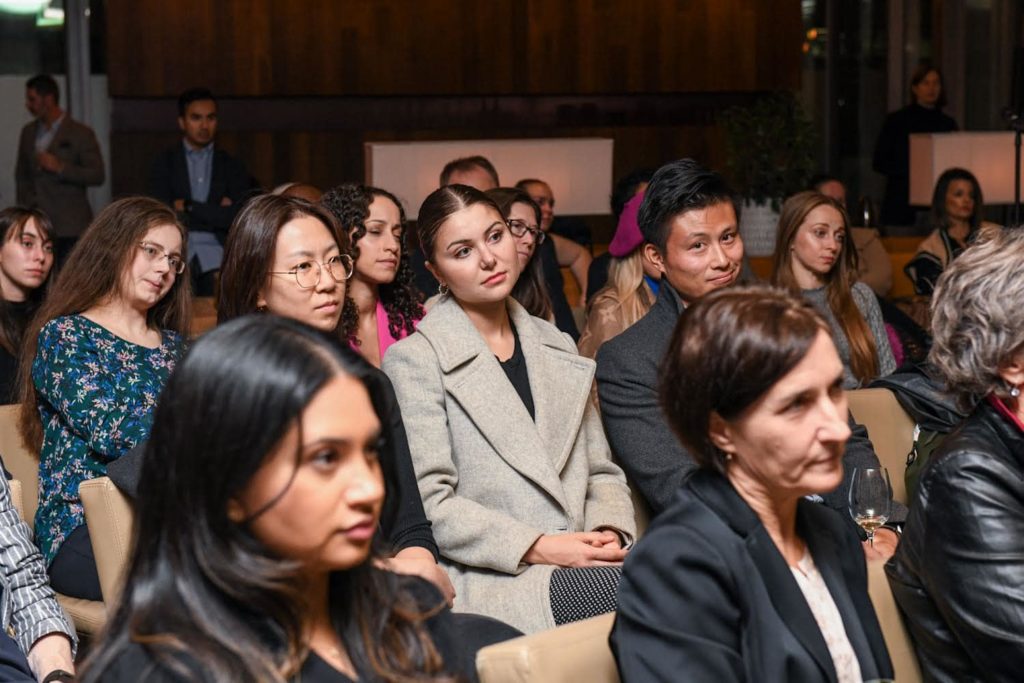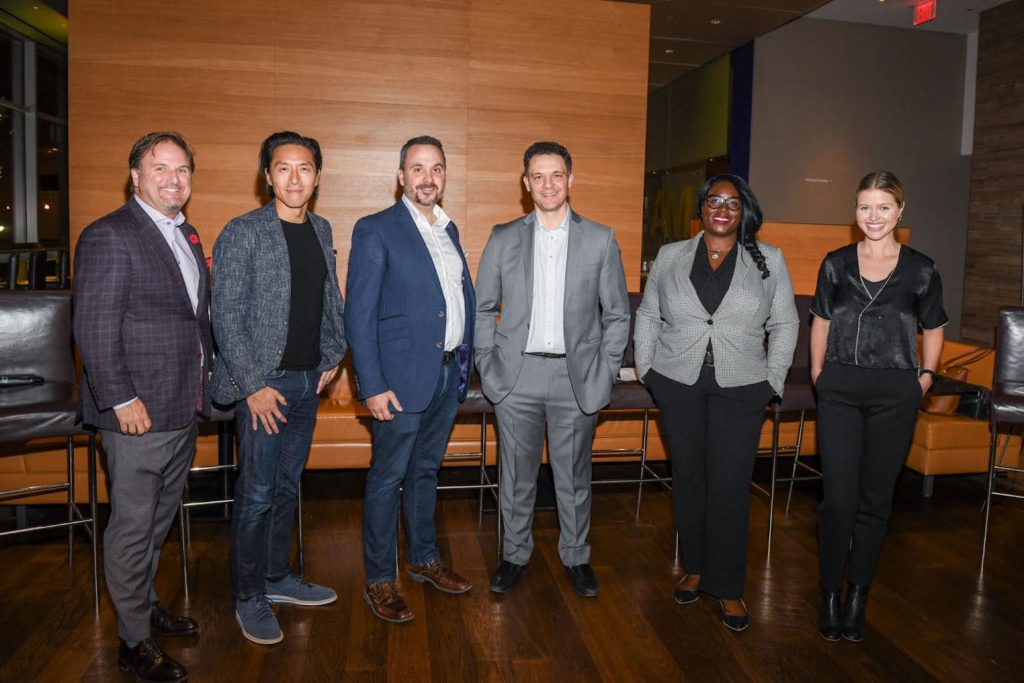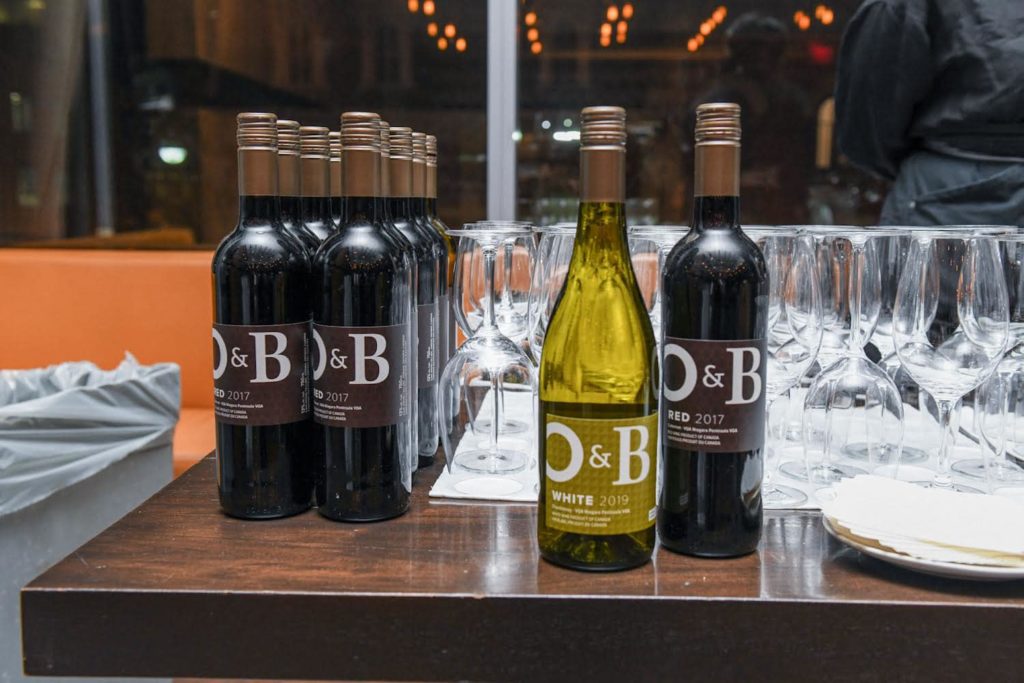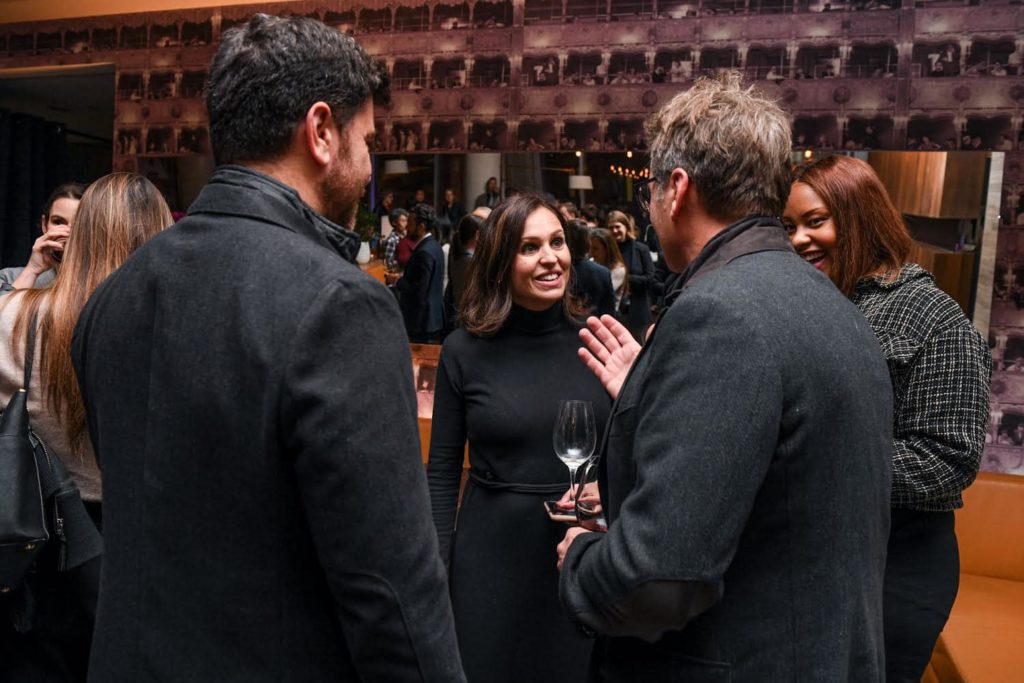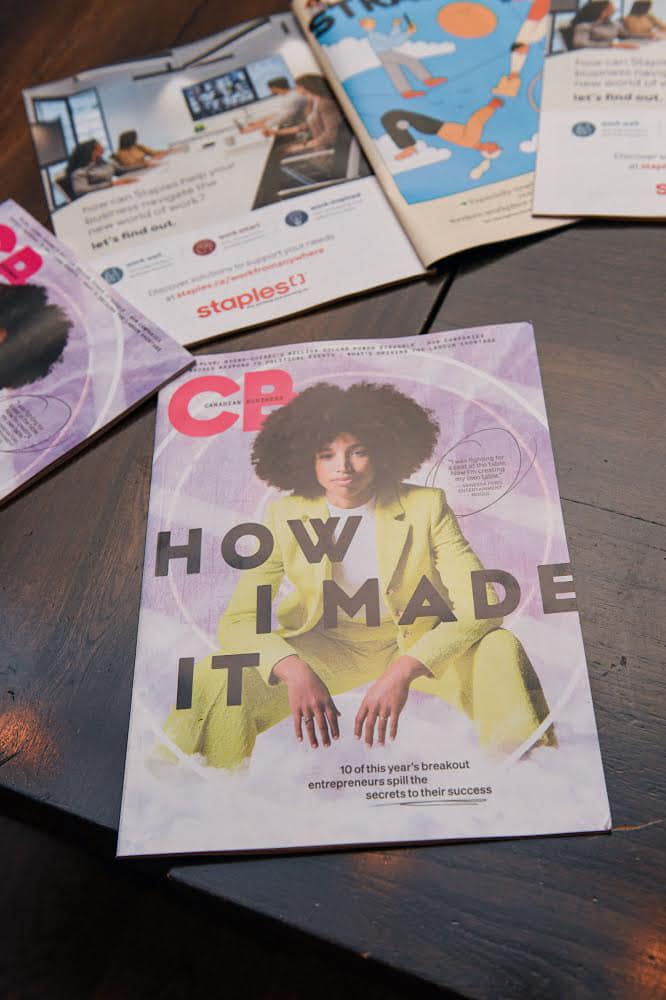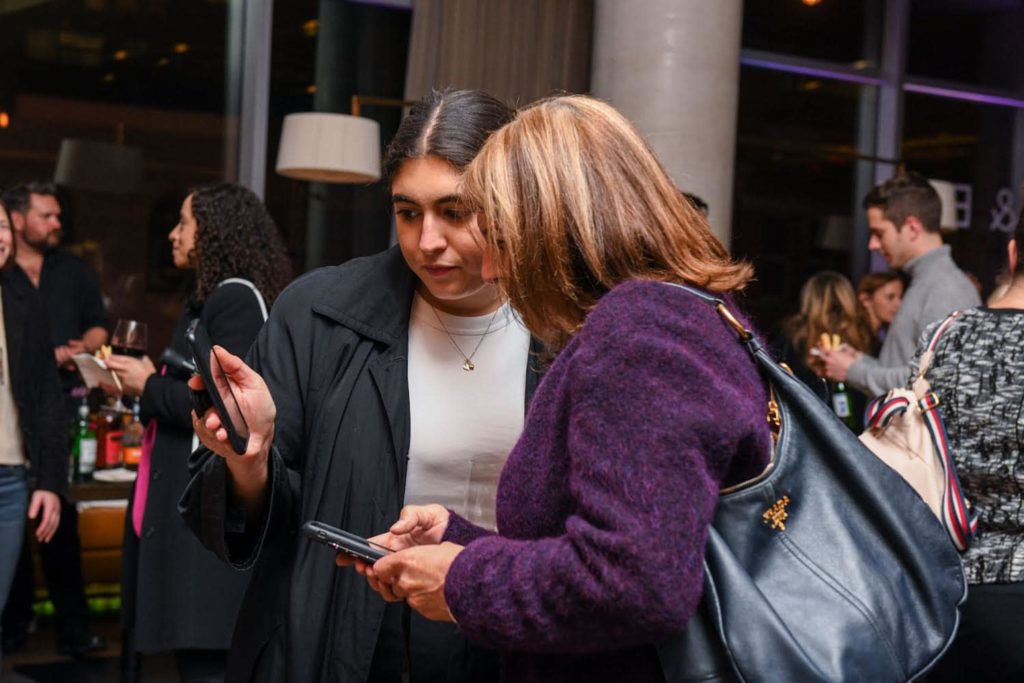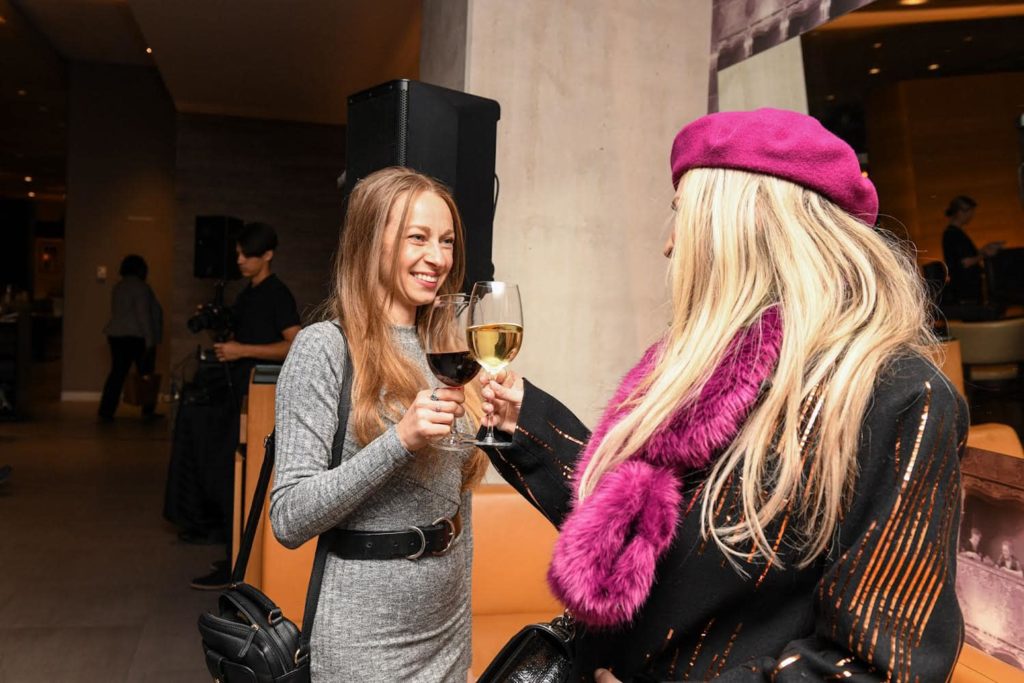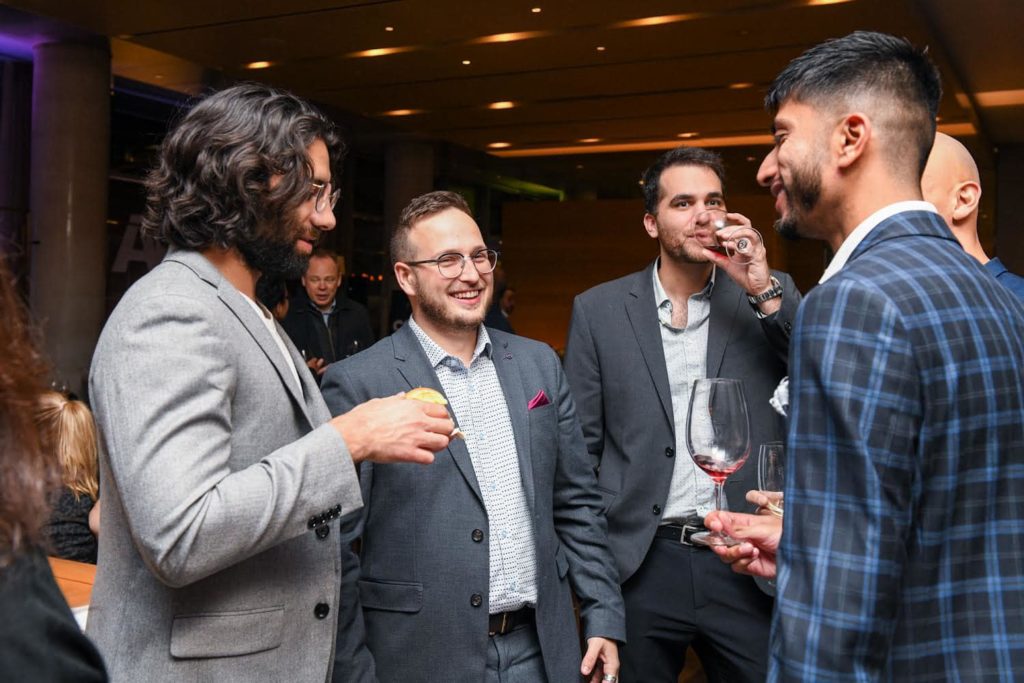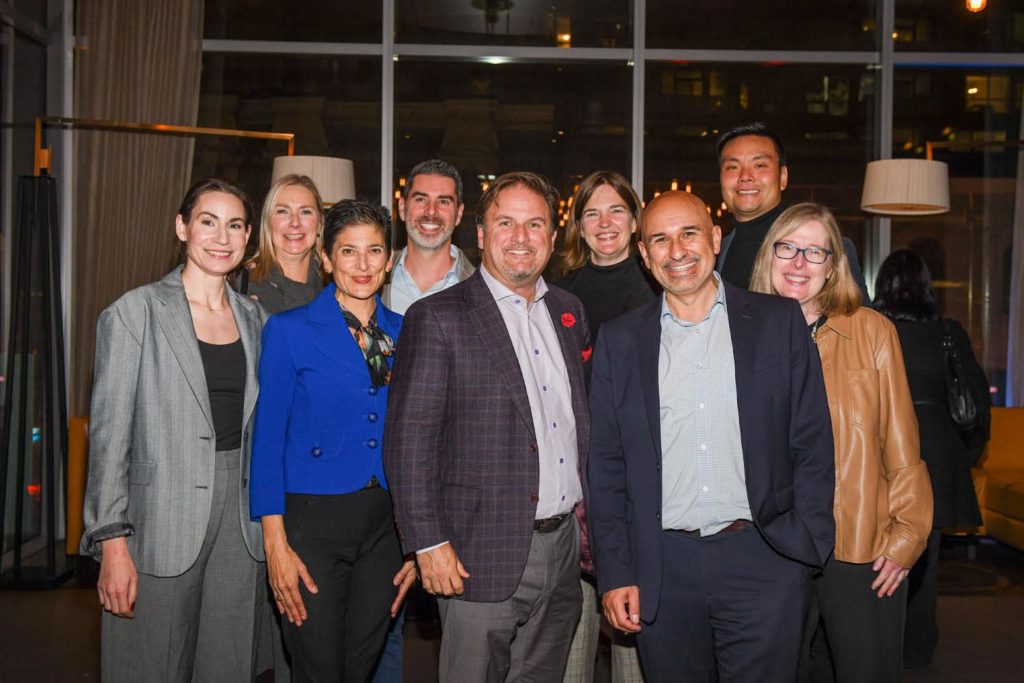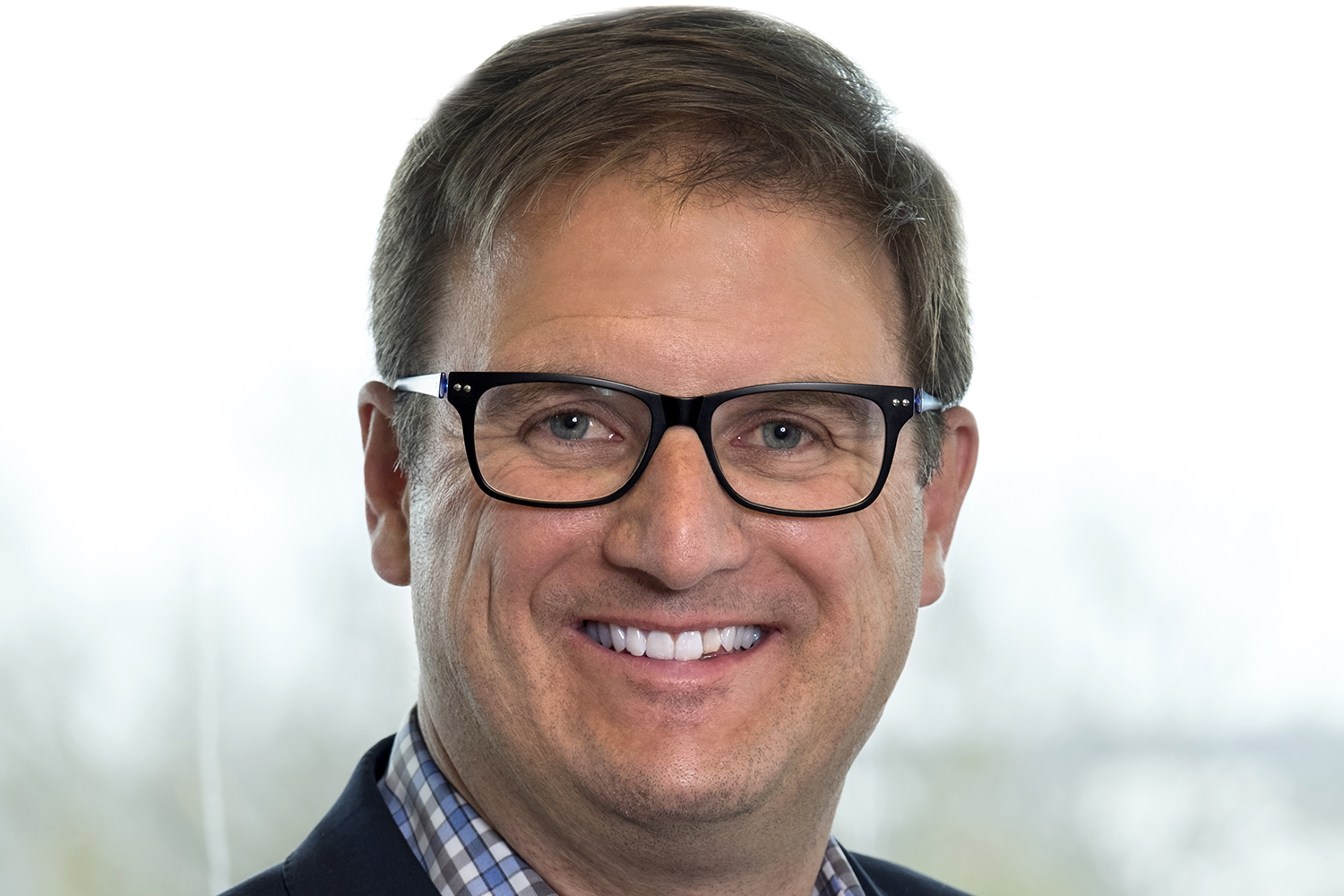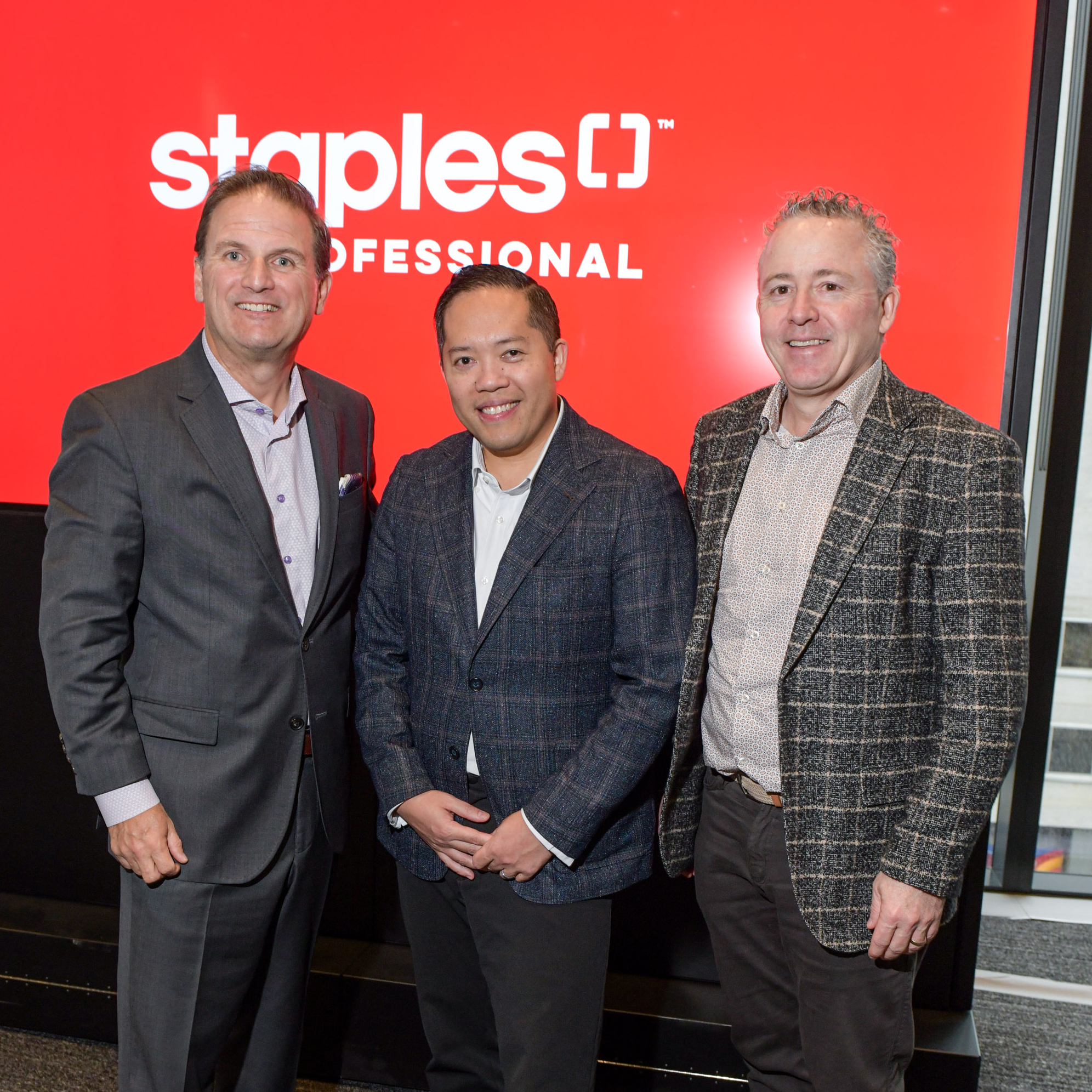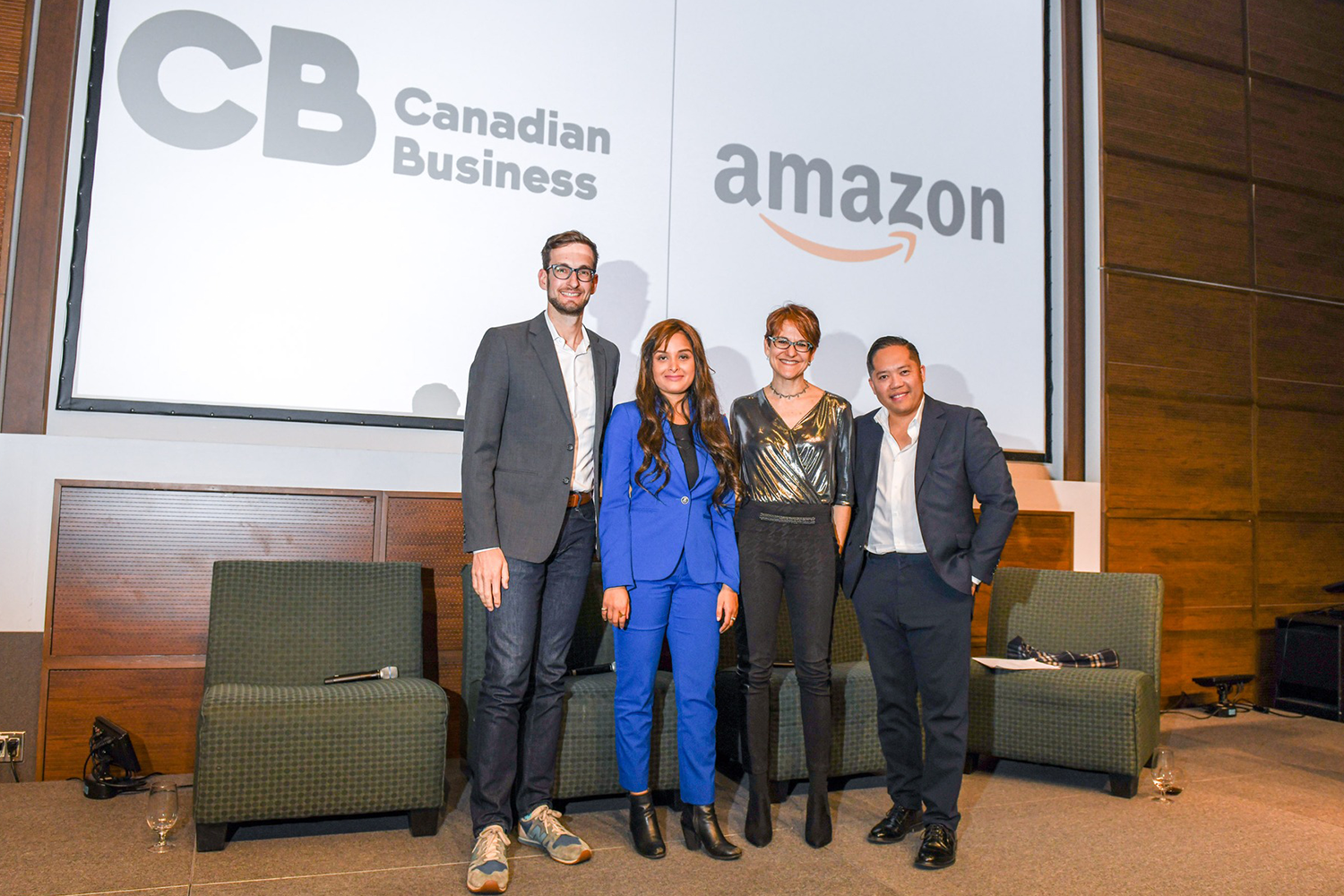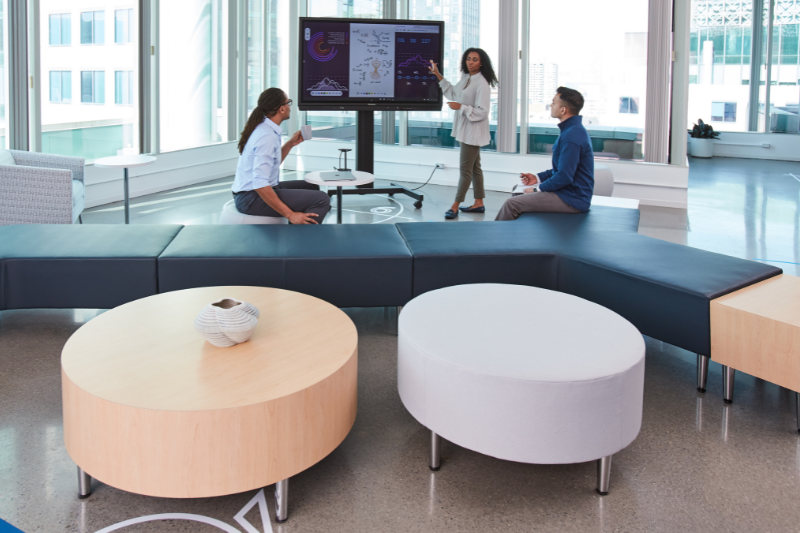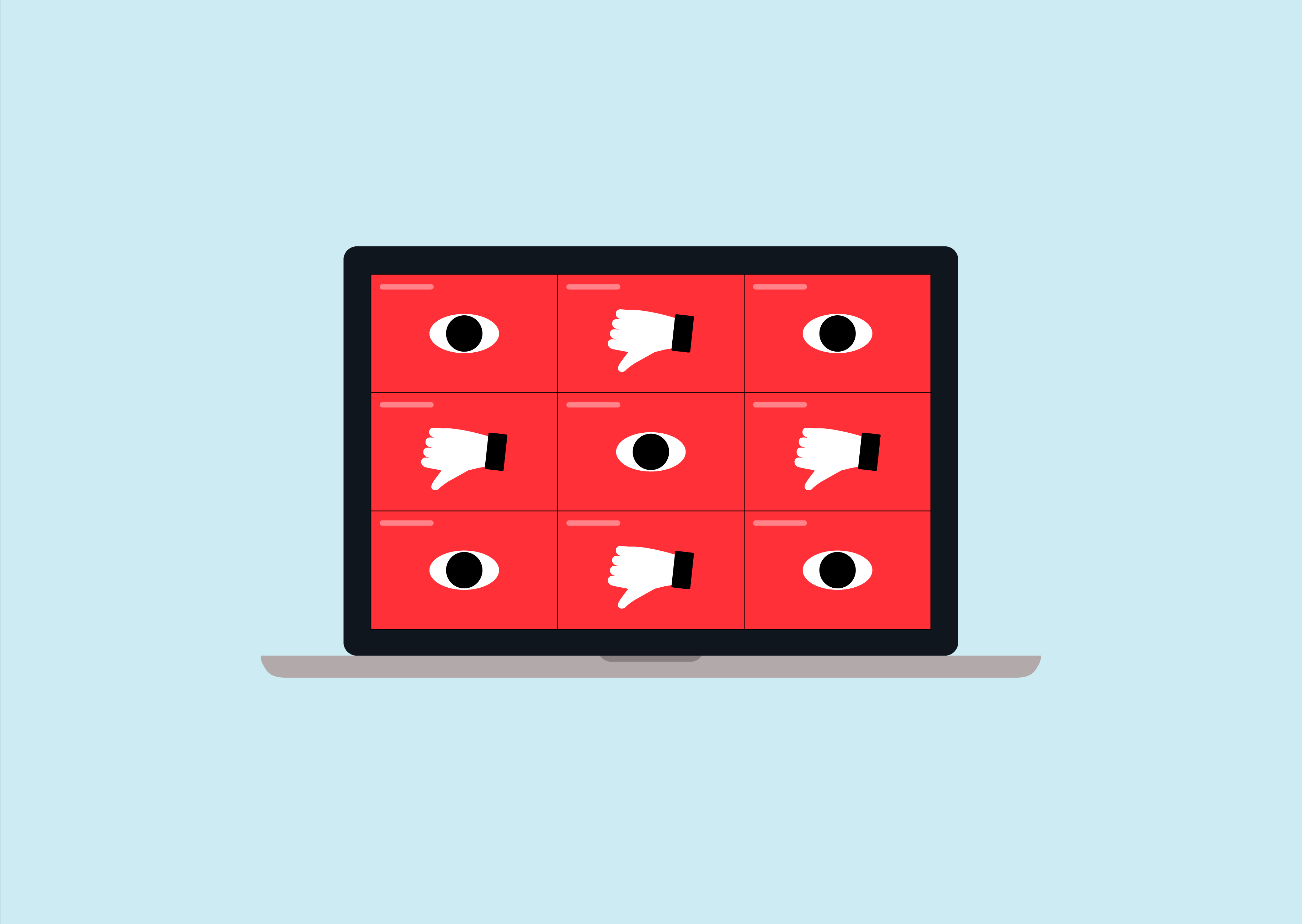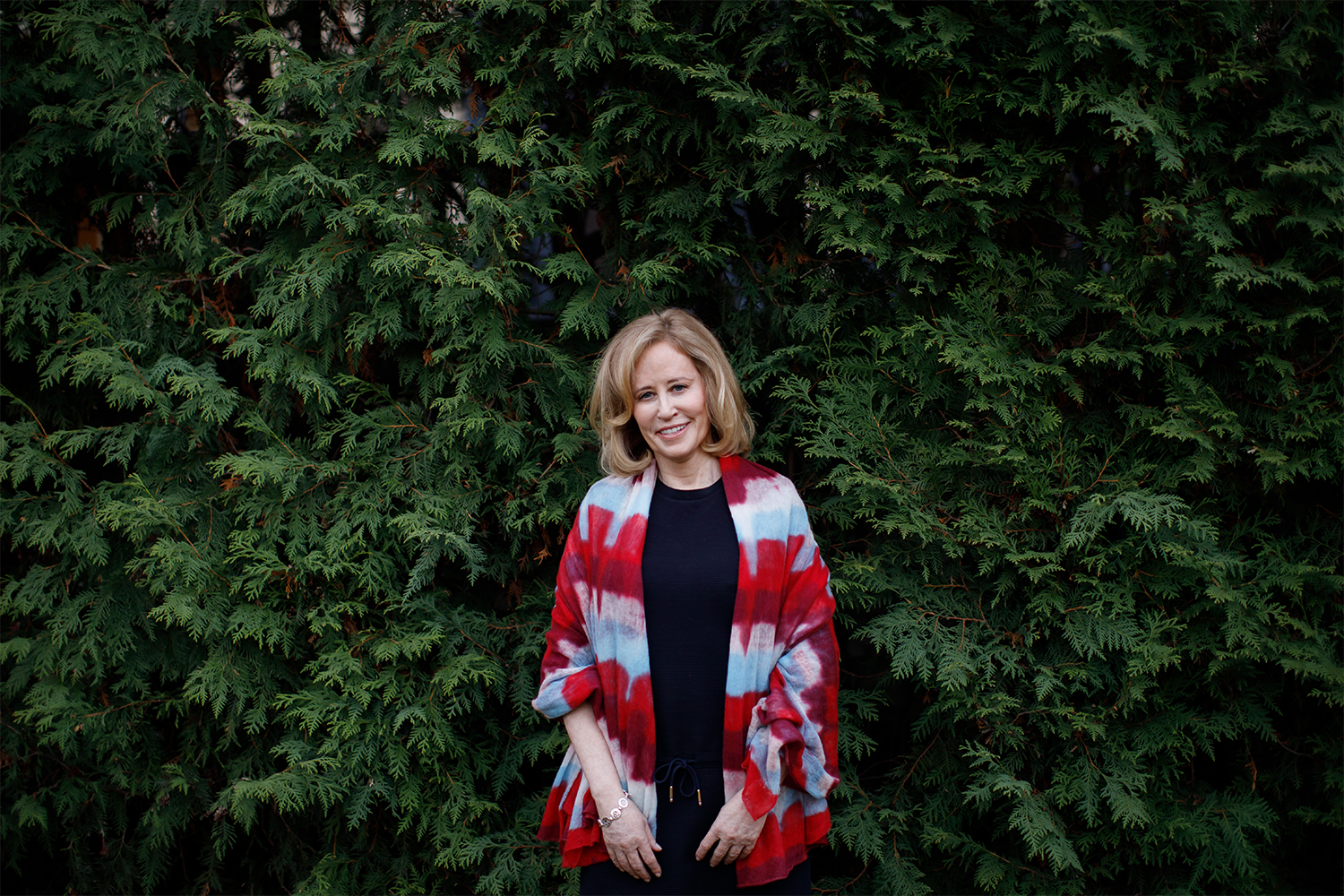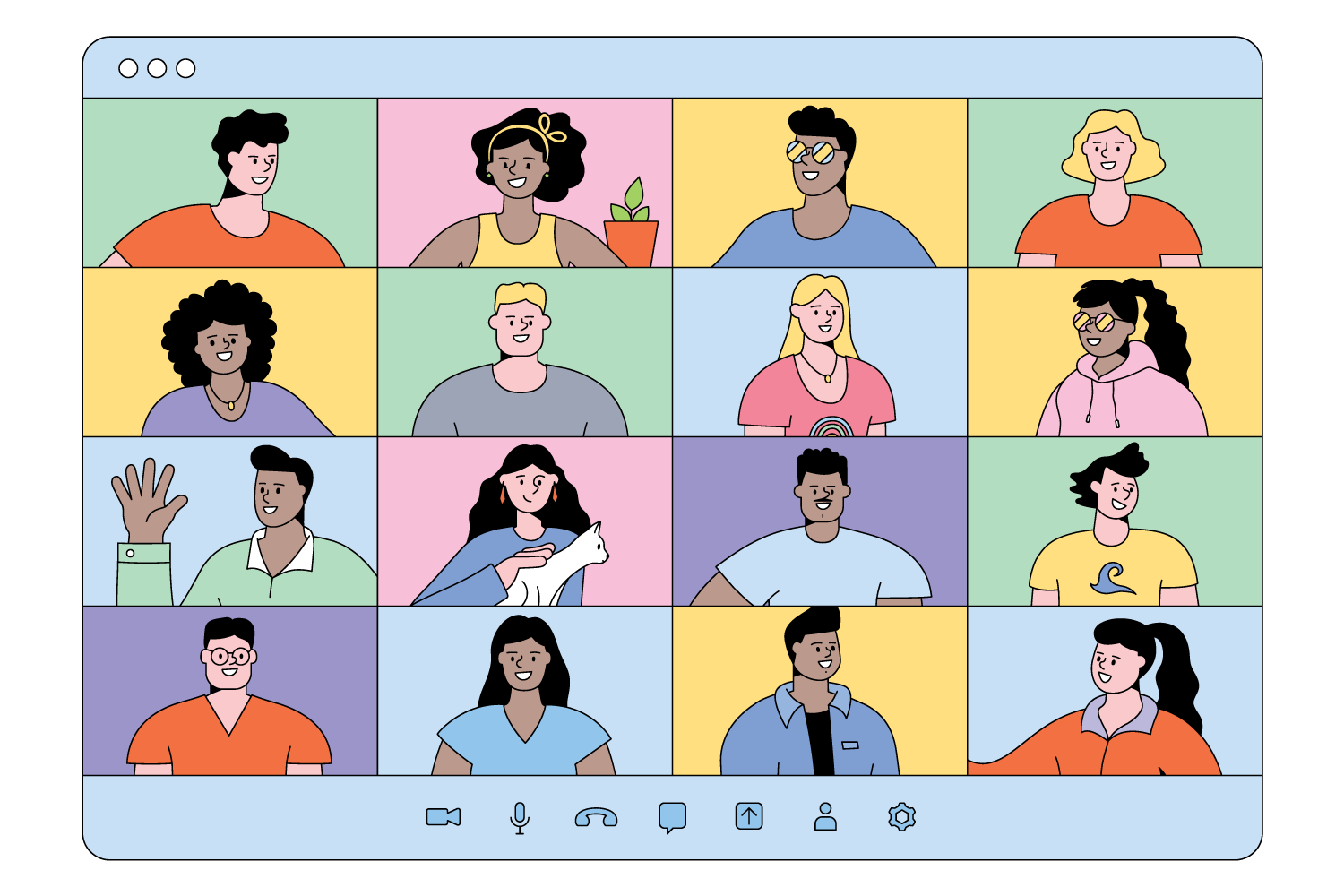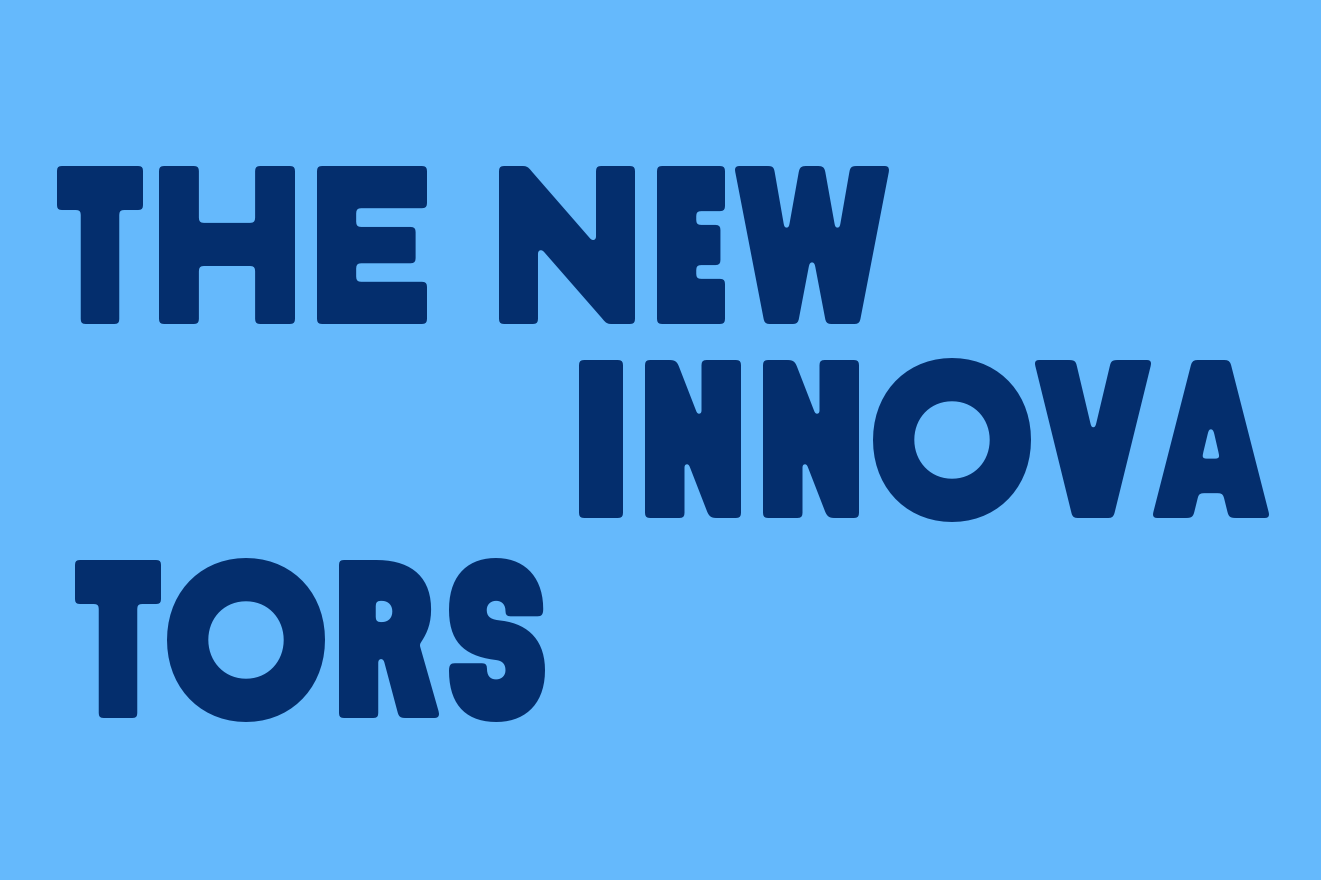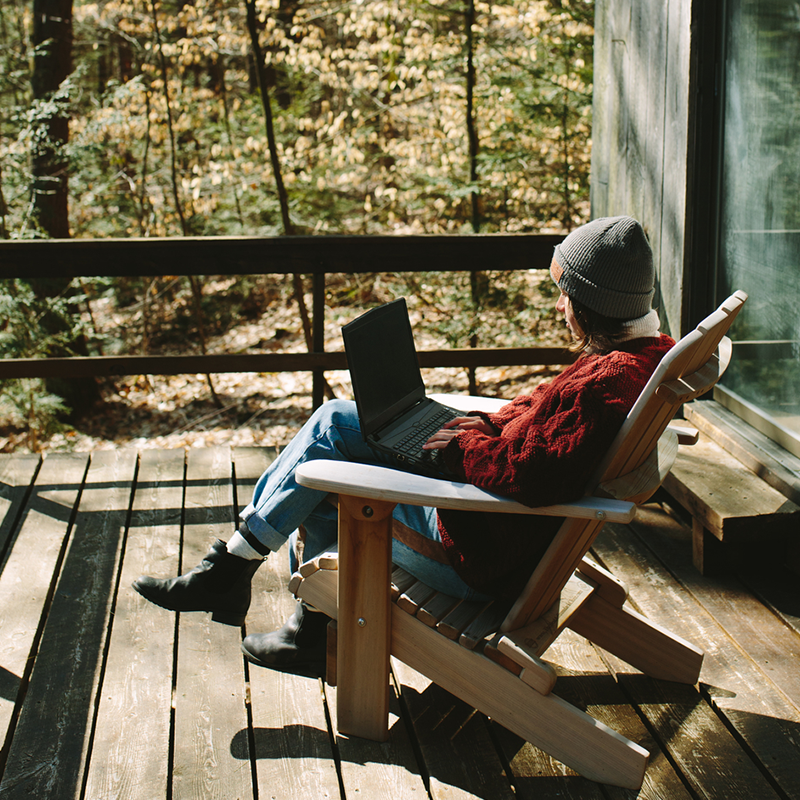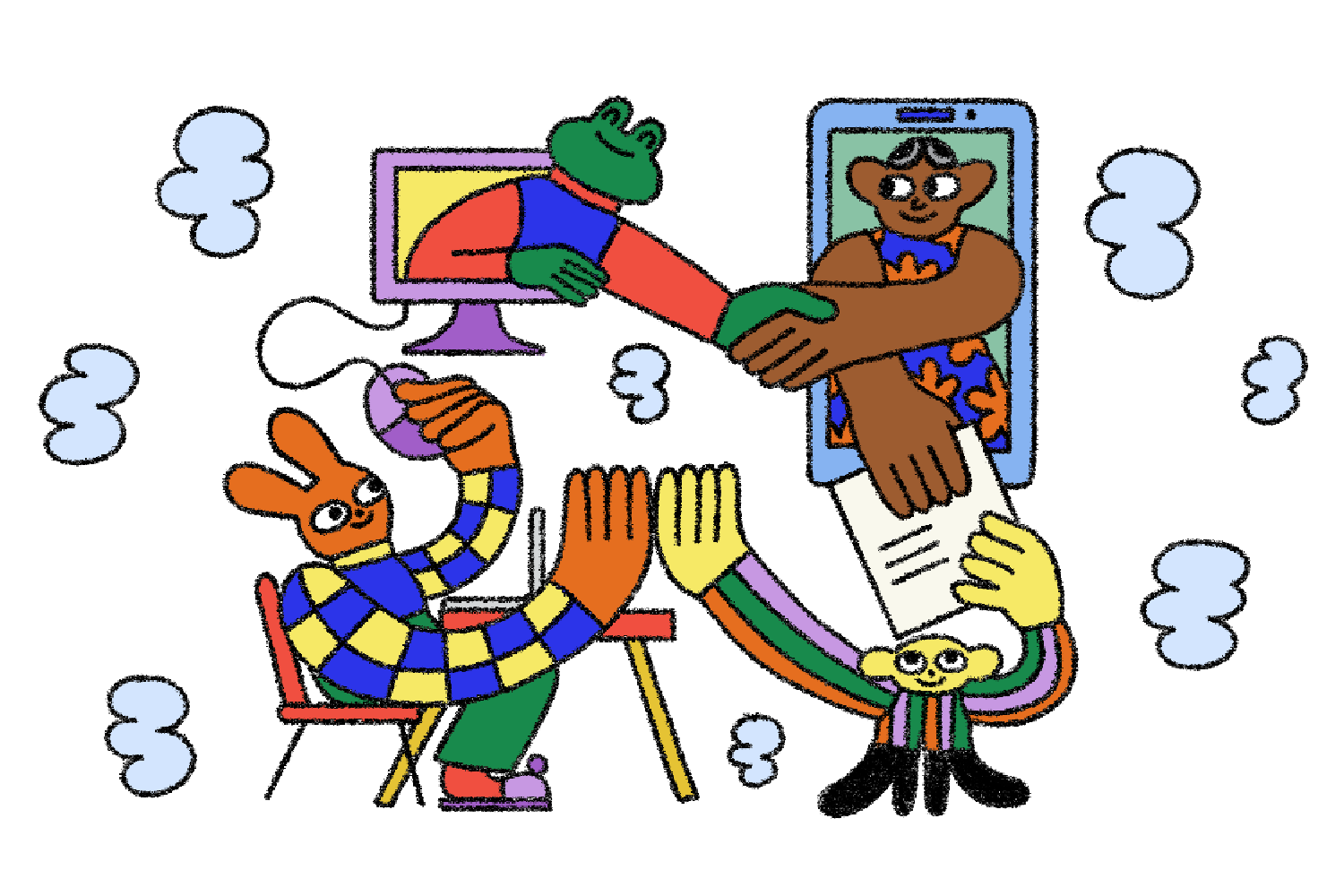What Went Down at CB’s Panel Talk About the Future of Work
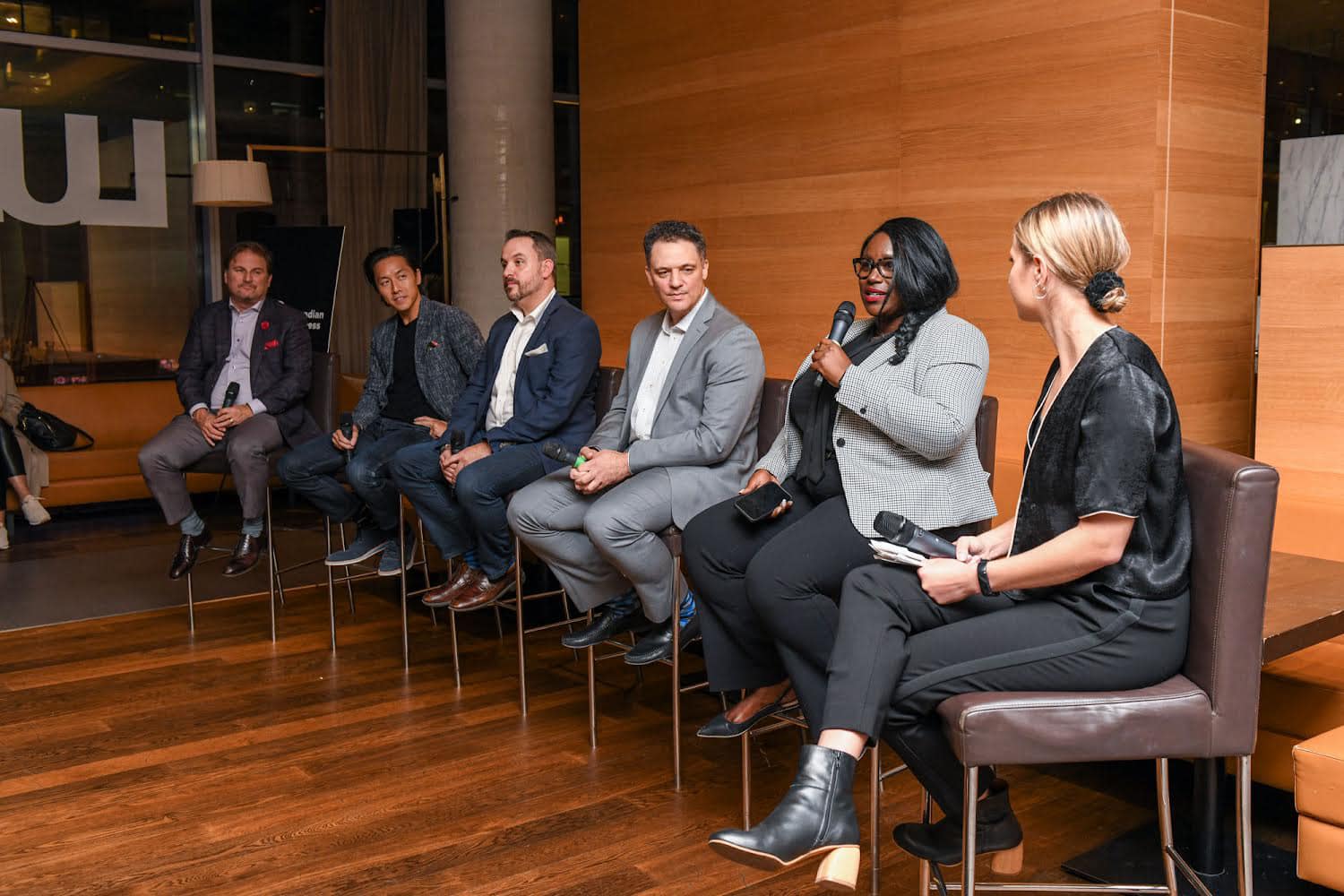
In partnership with Staples Canada, Canadian Business hosted a panel discussion on October 18th about a very pressing topic: the future of work. The insightful conversation was about hybrid work models, how companies can get employees to return from the office, how leaders can improve remote work experiences and what it’ll take for companies to meaningfully support their diverse workers.
Gathering at the restaurant Luma, located on the second floor of the TIFF Bell Lightbox, the panel was moderated by CB’s digital director, Laura Hensley, and featured a slate of business leaders from a variety of sectors: David Boone, CEO of Staples Canada; Demetre Eliopoulos, senior vice president and managing director of research services at Angus Reid Group; John Trougakos, a professor of organizational behaviour and HR management at the University of Toronto; Andrew Au, a global thought leader on digital transformation and culture change; and Charlene Theodore, chief inclusion officer at the law firm McCarthy Tetrault.
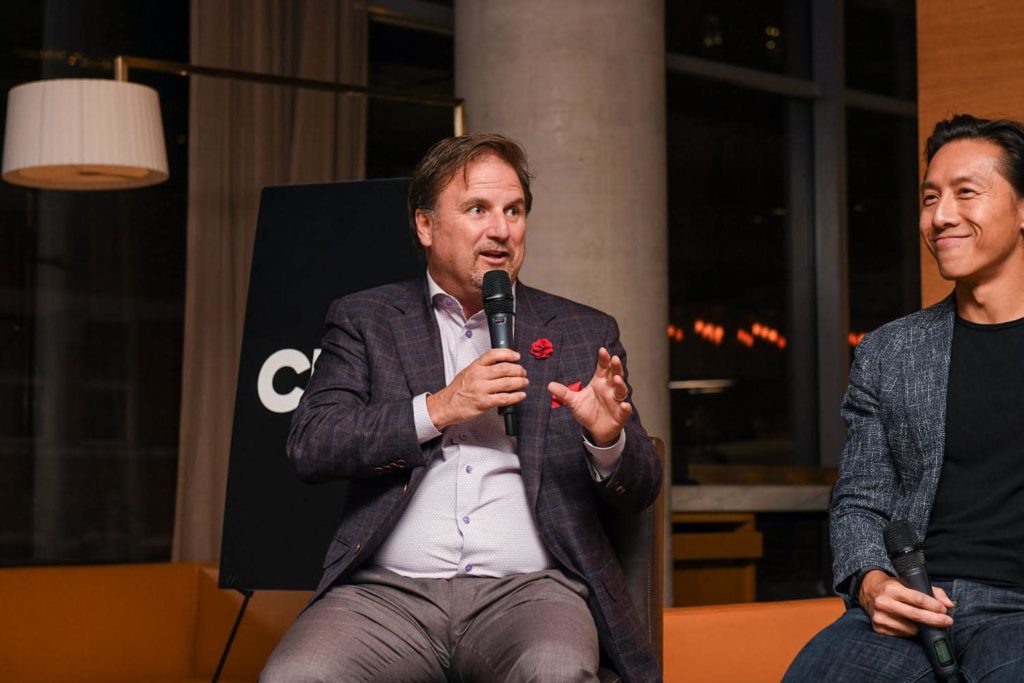
The night’s conversation started with an unpacking of a recent survey conducted by Staples and the Angus Reid group about how both employers and employees are feeling about their working situation—be it remote, hybrid or fully in-person. Boone kicked off the talk by summarizing the study’s findings: “Hybrid is here to stay, but no one’s gotten it right yet.” Both he and Eliopoulos described other key findings in the survey, such as the staggering number of employees—three quarters of those surveyed—who are less likely to take an in-office role.
Hensley asked panellists about the changes they’ve noticed in their own workplaces since the pandemic hit and office work was flipped on its head. Au explained that, overnight, his team became global and that actually improved the workplace since there were different perspectives in the mix. Theodore added that since 2020, companies’ problems surrounding diversity, equity and inclusion have been brought to the forefront of conversations about staffing. “The importance of retaining talent is front of mind right now—and that includes diverse talent,” she said.
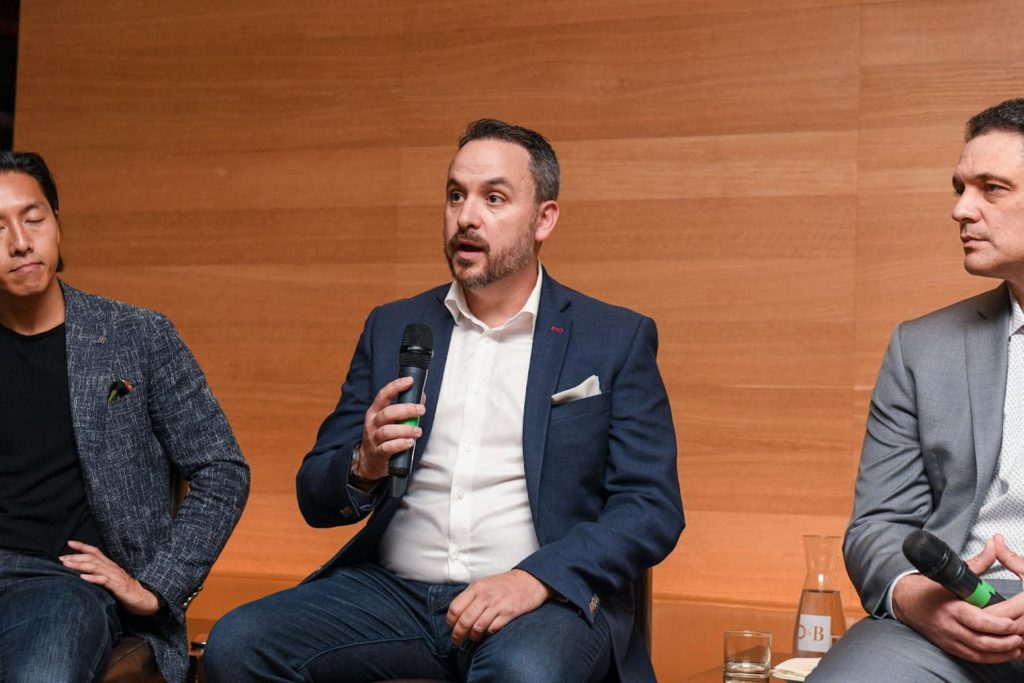
After discussing current workplace trends, the panel delved into hybrid work models. When asked about how companies should develop hybrid workplaces, Trougakos explained that leaders need to make their expectations of employees clear. He also stressed that leaders need to re-learn how to lead in a digital workplace. Eliopoulos added that back-to-work mandates, whether they translate to a continuation of some remote work or being back in the office full-time, need to be employee-first. Ideally, people should come in because they feel like they want to collaborate in real life with their colleagues. Au added that people typically do want to go into the office to socialize, so workplaces that want their employees back in the office need to make it about “more than just productivity.”
Theodore also noted that when people talk about hybrid work models, they tend to focus on improving the experience of digital workers while the experience of those who go into the office aren’t as given as much consideration. Jumping on that train of thought, Eliopoulos brought up the infrastructure gap in remote workplaces. Many employees, he said, don’t have designated work spaces—a lot of them are just using a corner of their kitchen table when they work from home, leading to all sorts of health repercussions, like sore backs and strained eyes. The solution, he asserted, is for companies to invest in employees’ home set-ups.
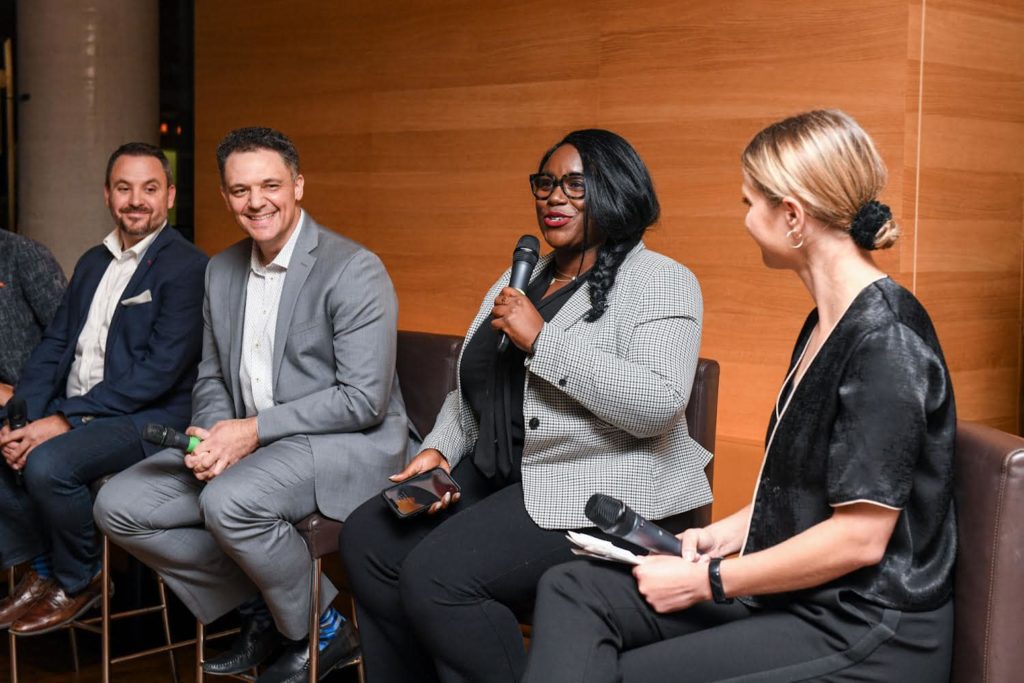
The panel discussion ended with a shift to talking about supporting people in the workplace, especially employees from diverse backgrounds. Theodore noted that while leaders are increasingly cognizant of differences in race, gender and sexuality, workplaces still aren’t thoughtful about ability and disability. She went on to suggest bringing in a third-party consultant to help companies improve how they’re supporting all their employees.
After a brief audience Q&A, the panellists joined the audience for wine, food and networking to cap off the night.
